238. In order to perceive properly
they - the 'Twins of Contrast' (for creating perceptions) - had to be located close to
one-another. The list for
the
Mesopotamian ecliptic stations was beginning with the Twins
at the Tail of the Goat.
... The tradition preserved by Hyginus in his Poetic
Astronomy that the constellation Capricorn ('He-goat') was
Zeus's foster-brother Aegipan, the
Kid of the Goat Amalthea whose horn Zeus also placed among the
stars, shows that Zeus was born at mid-winter when the Sun
entered the house of Capricorn ...
Here the idea could have been to
point to the contrast between these twins (→ 2) at the Tail of the Goat in contrast to the
beginning of the following season (→ 1).
... In the morning of the world, there
was nothing but water. The Loon was calling, and the old man
who at that time bore the Raven's name, Nangkilstlas,
asked her why. 'The gods are homeless', the Loon replied.
'I'll see to it', said the old man, without moving from the
fire in his house on the floor of the sea.
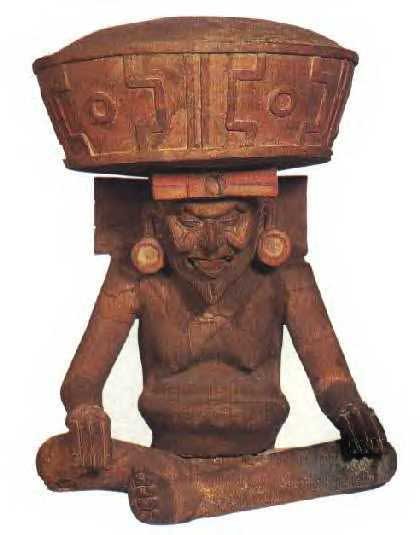
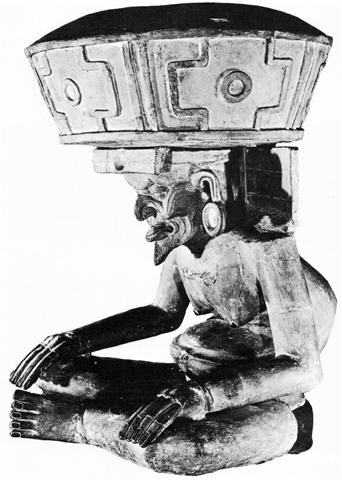
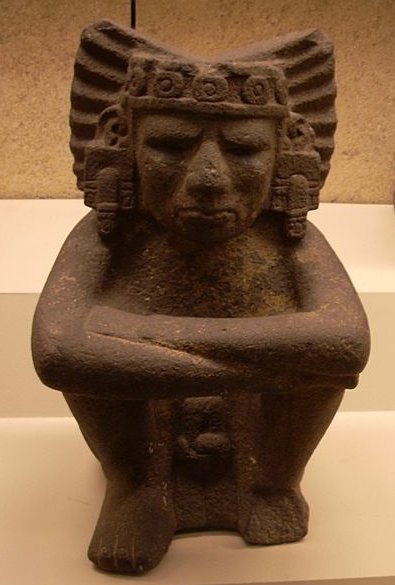
Then as the old man continued to lie by
his fire, the Raven flew over the sea. The clouds broke. He
flew upward, drove his beak into the sky and scrambled over
the rim to the upper world. There he discovered a town, and
in one of the houses a woman had just given birth.
The Raven stole the skin and form
of the newborn child. Then he began to cry for solid food,
but he was offered only mother's milk. That night, he passed
through the town
stealing an eye from each inhabitant. Back in his foster
parents' house, he roasted the eyes in the coals and ate
them, laughing. Then he returned to his cradle, full and
warm ...
Taki.
Dieffenbach, in his 'Travels in New Zealand', mentions that
a title or appellation of the chiefs there was 'Taki
o te Wenua', and explains it to mean 'the root of
the land'. As the New Zealanders also came from the Samoan
group, it seems as if what once was a national appellation,
in course of time became the title of a chief. If
Diffenbach's interpretation of the title is correct, it
corresponds to the Hawiian
Kumu-honua, the name of the first man. The same
author also mentions, p. 67, a place where chiefs go after
death, and says it is called
Taki-wana ... when a
chief dies he first goes to
Taki-wana,
where his left eye remains and becomes a star. Then he goes
to Reinga and
further. Spirits sometimes leave the nether world and come
back on earth and communicate with the living ...
Reinga was a
place near the North Cape, New Zealand, where the spirits of
the dead collected previous to their final departure.
Fornander.
Once
upon a time the 'Star' (Kochab, β Ursae Minoris)
had
marked the North Pole and at this place the
constellation of Libra would follow - where the Horus Child
of the Morning was hungry and therefore pointed at his mouth:
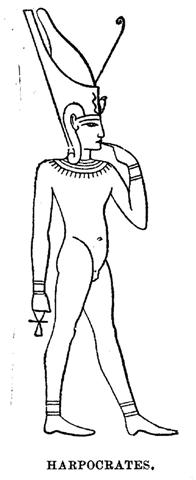 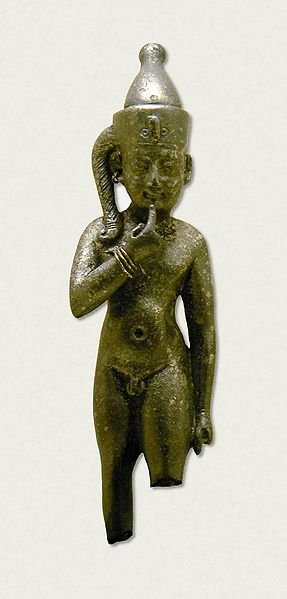
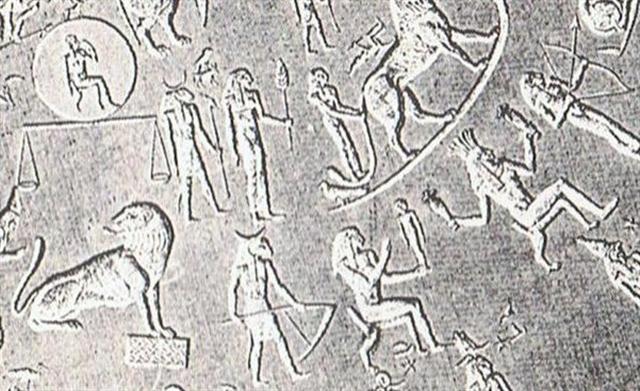
|
AUG 29 (80 + 161) |
30 (242) |
31 (61 + 182) |
SEPT 1 |
2
(*165) |
3
(2 * 123) |
 |
 |
 |
 |
 |
 |
|
Ga6-21 (161) |
Ga6-22 |
Ga6-23 |
Ga6-24 (164) |
Ga6-25 |
Ga6-26 |
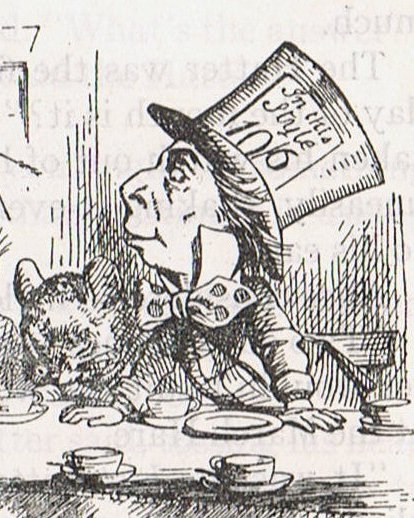
... Midsummer is the
flowering season of the oak, which is the tree
of endurance and triumph, and like the ash is
said to 'court the lightning flash'. Its roots
are believed to extend as deep underground as
its branches rise in the air - Virgil mentions
this - which makes it emblematic of a god whose
law runs both in Heaven and in the Underworld
... The month, which takes its name from
Juppiter the oak-god, begins on June 10th
and ends of July 7th. Midway comes St. John's
Day, June 24th, the day on which the oak-king
was sacrificially burned alive. The Celtic year
was divided into two halves with the second half
beginning in July, apparently after a seven-day
wake, or funeral feast, in the oak-king's honour
... |
|
KOCHAB (Kakkab,
Babylonian for Star) = β Ursae Min.
(225.0),
ξ Librae (225.7) |
KE KWAN (Cavalry Officer) =
β
Lupi
(226.3),
KE KWAN =
κ
Centauri (226.4),
ZUBEN ELAKRIBI (Claw of the
Scorpion) =
δ
Librae
(226.8),
π¹
Oct.
(226.9)
*185.0 = *226.4 - *41.4 = "Sept 22 (265) =
equinox |
ω Bootis (227.2),
NEKKAR (Herdsman) = β Bootis
(227.3), σ Librae (227.5), π² Oct. (227.7),
NADLAT (Mean Little Ones) = ψ Bootis
(227.8), π Lupi (227.9) |
15h (228.3)
ZUBEN HAKRABIM (Claw of the Scorpion) =
ν
Librae
(228.3),
λ
Lupi (228.9) |
ω
Oct. (229.3),
ι
Librae (229.6),
κ
Lupi (229.7),
ζ
Lupi (229.8)
Dec
21
AD 2023 VENUS |
Al Zubānā-14b (Claws)
χ
Bootis (230.3),
PRINCEPS =
δ
Bootis
(230.6),
ZUBEN ELSCHEMALI (Northern Claw) =
β
Librae
(230.8)
Dec
21
AD 2031 VENUS |
|
Nov 1 (*225) |
2 |
3
(*227) |
4 |
5 |
6
(310) |
|
°Oct 28 (301) |
29 |
30 |
31
(*224) |
°Nov 1 |
2 |
|
'Oct 5 |
6
(*199) |
7
(280) |
8 |
9 |
10 |
|
"Sept 21 (264) |
EQUINOX (*185) |
23
(266) |
24 |
25 |
26 |
|
THE
NAKSHATRA VIEW: |
|
FEBR 28 (59) |
MARCH 1 (*345) |
2 (241 - 182
= 61) |
3 |
4 (365 + 63 = 428) |
5
(64) |
|
ρ
Arietis (43.0),
GORGONEA SECUNDA =
π
Persei
(43.5),
ACAMAR (End of the River) =
θ
Eridani
(43.6),
ε
Arietis (43.7),
λ
Ceti (43.9)
DENEBOLA (β Leonis) |
MENKAR (The Nose) =
α
Ceti
(44.7) |
3h (45.7)
GORGONEA TERTIA =
ρ
Persei
(45.1),
ALGOL (The Demon) = β Persei
(45.9) |
ι
Persei (46.1),
MISAM (Next to the Pleiades) =
κ
Persei
(46.2),
GORGONEA QUARTA =
ω
Persei
(46.7),
BOTEIN (Pair of Bellies) =
δ
Arietis
(46.9) |
ζ Arietis (47.7) |
ZIBAL (Young Ostriches) = ζ Eridani (48.0),
κ
Ceti (48.9) |
|
May 4 AD 2030 MARS |
|
May
3 (123) |
4 |
5
(490 = 70 weeks) |
6 |
7 (*412) |
→
29½ * 14 |
|
°April 29 |
30
(120) |
°May
1 (*41) |
2 |
3
(*408) |
4 |
|
'April 6 |
7 |
8
(*383) |
9 |
10
(100) |
11 (466) |
|
"March 23 |
24 |
25 (3-25,
84) |
26
(450) |
27
(86) |
28
(*372) |
Whereas the C text, we have seen, seems to have marked
out
Kochab after
The Southern Claw:
| manu rere - kua rere
ga manu - ki te ragi |
eaha te nuku erua |
koia kua huki |
e niu tu |
ki te
ariki - e ka hua ra tona rima |
|
Ga. Preposed plural marker of
rare usage. 1. Sometimes used with a few nouns denoting
human beings, more often omitted. Te ga vî'e, te ga
poki, the women and the children. Ga rauhiva
twins. 2. Used with some proper names. Ga Vaka,
Alpha and Beta Centauri (lit. Canoes). Vanaga.
Gaa. Gaaha, to burst, to become
ruptured, to have a discharge of pus, of blood. Ku
gaaha te toto o te ihu. He had a nose-bleed. E
û'i koe o gaaha te îpu. Be careful not to break the
bottle (lit. look out lest the bottle burst). E tiaki
á au mo gaaha mai o te harakea. I shall wait for the
abcess to burst. Gaatu, totora reed. Vanaga. To
break, to split, to crack, to rive; fracture, fissure,
break, crack, crevice (gaaha); niho gaa,
toothache, broken teeth; gaamiro (miro,
ship) shipwreck; gaàpu (pu 2), abortion;
poki gaàpu, abortive child. T Mq.: naha,
nafa, split, fissure. Ta.: aha, afa,
crack fissure. Gaatu 1. Bulrush, reed. 2. (gatu).
Churchill. |
 |
 |
 |
 |
 |
|
Cb1-12
(392 + 12) |
Cb1-13 |
Cb1-14 |
Cb1-15
→ Mercury |
Cb1-16 (408) |
|
CLOSE TO THE FULL
MOON: |
|
April 28 (4
* 29½) |
29 |
30 |
May 1 (11 *
11) |
2 (2 * 61) |
|
ν Arietis
(38.5), δ, ε Ceti (38.8) |
μ Arietis (39.4),
HEAD OF THE FLY = 35 Arietis
(39.6),
KAFFALJIDHMA = γ Ceti,
θ Persei (39.8) |
π Ceti, ο
Arietis (40.0),
ANGETENAR = τ¹ Eridani,
μ Ceti (40.2),
RIGHT WING = 39 Arietis
(40.9) |
Bharani-2 (The Bearer) /
Stomach-17 (Pheasant)
π Arietis
(41.2),
MIRAM = η Persei
(41.3),
BHARANI
= 41 Arietis (41.4),
τ² Eridani, σ Arietis (41.7) |
TA LING
(Great Mound) = τ Persei
(42.4)
*1.0 = *42.4 - *41.4
|
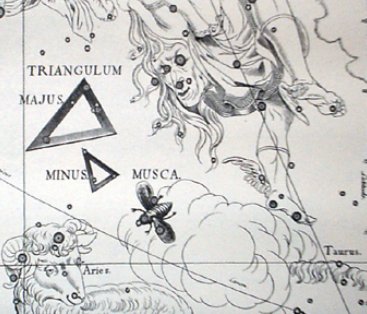 |
|
'April 1
(91) |
2 |
3 |
4 |
5 |
|
"March 18 |
19 (78) |
20 |
0h (*365) |
22 |
|
→
TERMINALIA |
→
BISSEXTUM |
FEBR 25 (110 - 64) |
26 (57) |
27 |
|
CLOSE TO THE SUN: |
|
Oct 28 |
29 |
30 |
31 (304 =
121 + 183) |
Nov 1
(*225) |
|
ρ Lupi
(221.0),
TOLIMAN
= α Centauri
(221.2), π Bootis (221.8), ζ Bootis (221.9) |
31 Bootis
(222.0),
YANG MUN = α Lupi
(222.1),
RIJL AL AWWA = μ Virginis
(222.5), ο
Bootis (222.9) |
IZAR = ε Bootis
(223.0),
109 Virginis,
α Apodis (223.3), μ Librae (223.8) |
Al Zubānā-14a (Claws) /
Visakha-16 (Forked) /
Root-3 (Badger)
ZUBEN ELGENUBI
(Southern Claw) =
α
Librae
(224.2),
ξ
Bootis,
ο
Lupi (224.5) |
KOCHAB (Kakkab,
Babylonian for Star) = β Ursae Min.
(225.0),
ξ Librae (225.7) |
|
... Kochab was at the opposite side of the pole compared
to Polaris, and thus also at the opposite side in the
right ascension circle. It meant Kochab was not very far
from the Full Moon when the Sun was at Polaris ...
... at the ancient
time of Bharani the star at the North Pole was not
Polaris but β Ursae Minoris - Kochab (as in Babylonian
Kakkab = Star).
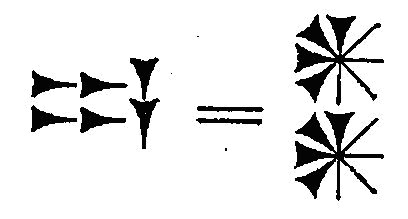 |
|
'Oct 1 |
2 |
3 |
4 |
5 |
|
"Sept 17
(260) |
18 |
19 |
20 (304 -
41 = 263) |
21 |
|
AUG 25 (*157) |
26 |
27 |
28 (304 -
64 = 240) |
29 |
.jpg)
|
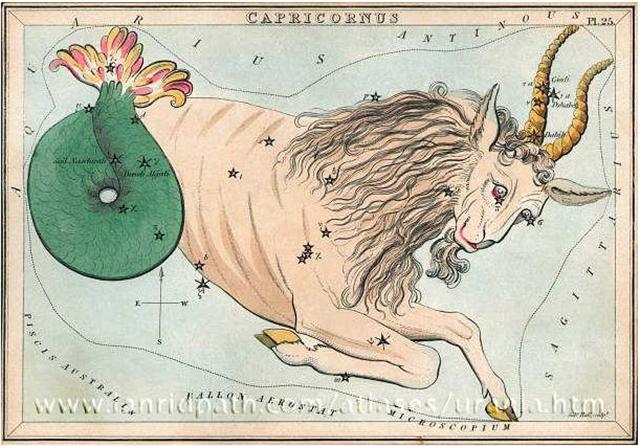
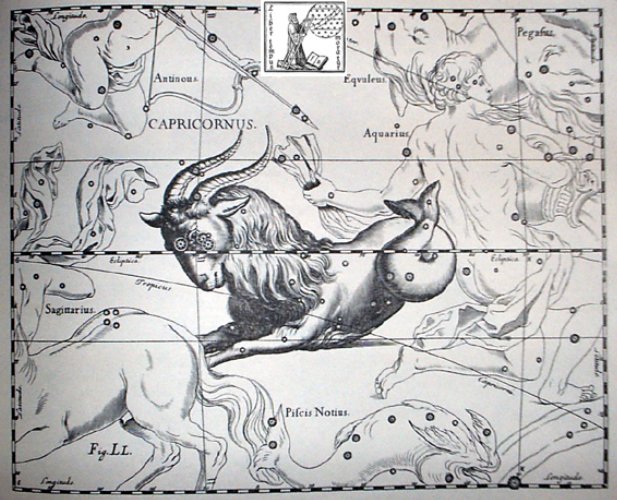




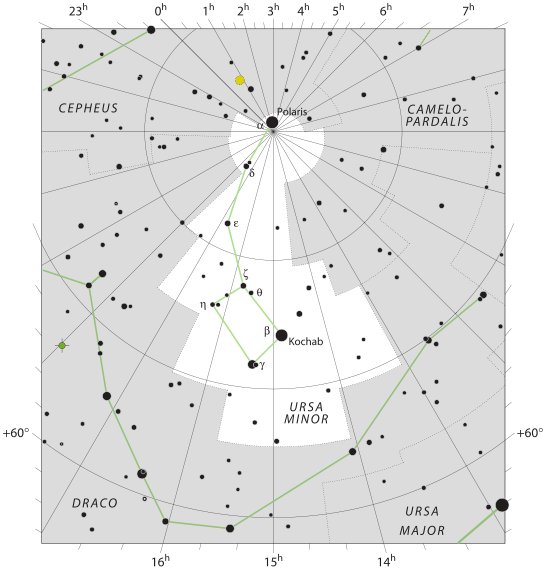












.jpg)